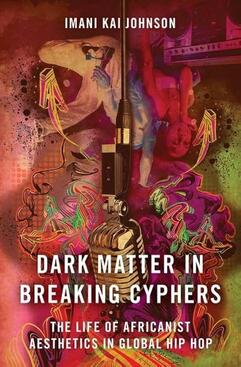The Dance Studies Association has awarded Imani Kai Johnson the 2024 de la Torre Bueno Prize for her book, “Dark Matter in Breaking Cyphers: The Life of Africanist Aesthetics in Global Hip Hop” (Oxford University Press, 2022).
The de la Torre Bueno Prize is given each year to a book written in English that contributes to the advancement of dance studies. Named after José Rollin de la Torre Bueno, the first university press editor to curate a collection of dance studies titles, the award has honored scholarly excellence in the field since 1973 and includes a $1,000 cash prize.
Johnson’s award-winning book, “Dark Matter in Breaking Cyphers,” explores the history and influence of Africanist aesthetics in hip-hop dance circles, also known as cyphers. The book draws on over a decade of research and offers an in-depth look at various aspects of Black history and culture.
Johnson, an associate professor with UCR's Department of Dance, specializes in the studies of the African diaspora, global popular culture, and hip-hop. She was born and raised in Northern California and earned her master’s degree from New York University and her doctorate in American studies and ethnicity from the University of Southern California.
The Dance Studies Association stated in their award announcement that “Johnson critically illustrates and expands our understanding of dance as a critical lens to attend to how power operates not only as a relational infrastructure but also ‘through and in’ embodied praxis. Johnson’s ethnographic writing is thick and rich and honest and is beautifully theorized using interdisciplinary tools drawn from across dance studies, cultural studies, Black studies, and diaspora studies. The book makes a radical move by expanding hip-hop discussions into a transnational context, with ethnographic case studies from the United States, Canada, and Europe. With rising hip-hop scenes across the world—and of course current conversations about hip-hop, decolonization, and the role the academic following the 2024 Paris Olympics—the book provides a timely theoretical and pedagogical framework with which to theorize new cultural landscapes by centering Black aesthetics.”
